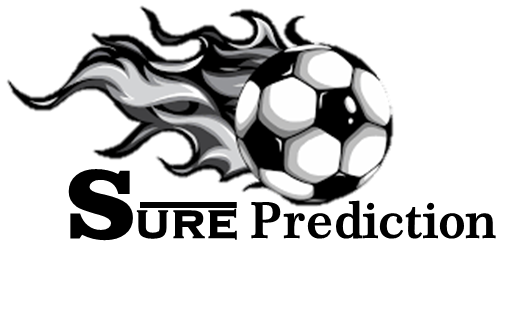The Science Behind Predictions
Predictions are not just guesswork; they are grounded in sophisticated algorithms, data analysis, and often, the power of machine learning. Statistical models play a crucial role in transforming vast datasets into meaningful insights, enabling individuals and businesses to anticipate future outcomes with a certain level of confidence.
Applications of Predictions in Various Fields
Sports Betting
One of the most common applications of predictions is in the realm of sports betting. Advanced algorithms analyze team performance, player statistics, and various other factors to provide odds that guide betting decisions.
Stock Market Predictions
Investors rely on predictive analytics to forecast market trends, helping them make informed decisions about buying or selling stocks. The accuracy of these predictions can significantly impact financial portfolios.
Weather Forecasting
Meteorologists use predictive models to anticipate weather patterns, providing timely warnings and crucial information for disaster preparedness.
Online Gaming
Gaming platforms utilize predictions to enhance user experiences, offering personalized recommendations and challenges based on individual player behavior.
Challenges in Prediction
Despite the advancements in predictive analytics, challenges persist. Uncertainties, variables, and ethical concerns surround the practice of making predictions. Balancing the risk and reward of acting on predictions requires careful consideration.
Tips for Successful Predictions
Gathering Reliable Data
The foundation of any accurate prediction lies in the quality of the data used. Reliable and up-to-date information is crucial for building robust predictive models.
Understanding the Context
Context matters. Knowing the specific conditions and variables influencing the prediction enhances its accuracy. A deeper understanding of the context provides more nuanced insights.
Continuous Learning and Adaptation
Predictive analytics is not static. Continuous learning and adaptation to new information and trends are essential for staying ahead in the prediction game.
Popular Tools and Platforms
AI-Driven Prediction Tools
Artificial intelligence has revolutionized predictive analytics. Tools driven by AI algorithms offer more accurate and faster predictions, making them popular among businesses and individuals.
Online Platforms for Predictions
Various online platforms provide prediction services, catering to a wide range of interests. These platforms often boast user-friendly interfaces, democratizing access to predictive analytics.
Accessibility and User-Friendly Interfaces
The ease of access and user-friendly interfaces of prediction tools have contributed to the widespread adoption of predictive analytics, making it accessible even to those with limited technical expertise.
Success Stories
From accurately predicting sports outcomes to influencing stock market trends, there are numerous success stories showcasing the power of predictions. These instances highlight the significant impact predictions can have on industries and individual decision-making processes.
Future Trends in Prediction
As technology advances, the future of predictive analytics looks promising. The integration of AI and human intuition, coupled with evolving predictive models, suggests a dynamic and continually changing landscape in the world of predictions.
How to Avoid Common Pitfalls
Overreliance on Predictions
While predictions offer valuable insights, overreliance can lead to poor decision-making. It’s crucial to view predictions as one tool among many in the decision-making toolkit.
Misinterpreting Data
Understanding the limitations of data and avoiding misinterpretation is vital. Context and nuance play a significant role in extracting meaningful insights from predictive analytics.
Ignoring External Factors
Predictions are influenced by external factors. Ignoring these factors can lead to inaccuracies. A holistic approach that considers both internal and external variables is essential.
User Experiences and Testimonials
Real stories from individuals who have benefited from predictions provide a human touch to the technical aspects discussed. Varied perspectives on prediction success offer a nuanced understanding of the impact predictions can have on different lives.
The Social Impact of Predictions
Predictions don’t just shape individual decisions; they also influence societal behavior. Understanding the social impact of predictions highlights the responsibility that comes with leveraging predictive analytics.
Tips for Beginners
Understanding Basic Concepts
For beginners, grasping the fundamental concepts of predictive analytics is the first step. Building a strong foundation in statistical models and algorithms is essential.
Starting with Small Predictions
Beginners should start with smaller predictions and gradually move to more complex scenarios. Learning from each prediction, whether successful or not, is part of the growth process.
Seeking Guidance from Experts
Expert guidance can significantly accelerate the learning curve. Seeking advice from experienced individuals in the field provides valuable insights and practical tips.
Conclusion
In conclusion, “Prediction Sure Win” encapsulates the power of predictive analytics in shaping the way we make decisions. While challenges exist, the benefits are undeniable. By understanding the science behind predictions, embracing continuous learning, and avoiding common pitfalls, individuals and businesses can unlock the full potential of predictive analytics responsibly.
FAQs
- Can predictions guarantee success? Predictions offer insights, but success is influenced by various factors. They should be used as a tool, not a guarantee.
- How can beginners start with predictive analytics? Beginners should focus on understanding basic concepts, start with small predictions, and seek guidance from experts.
- Are online prediction platforms reliable? The reliability of online platforms varies. It’s essential to choose reputable platforms with a track record of accuracy.
- What role does AI play in predictive analytics? AI enhances predictive analytics by improving accuracy and speed, making predictions more reliable.
- Is overreliance on predictions a common pitfall? Yes, overreliance on predictions without considering other factors can lead to poor decision-making.

